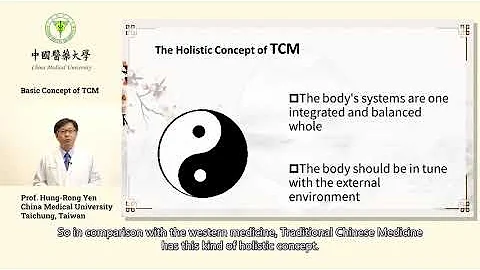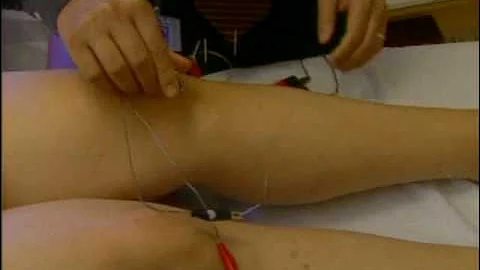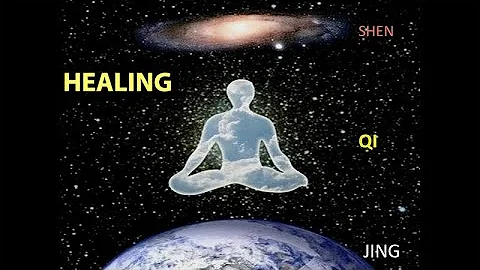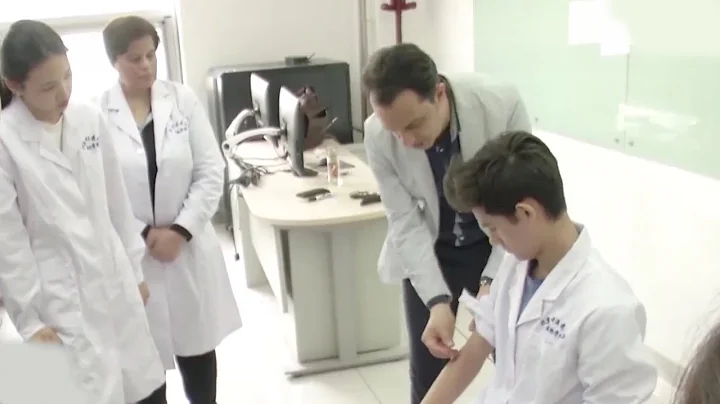
Traditional Chinese medicine has been inherited and developed in my country for thousands of years. It was born in primitive society and the basic theory of traditional Chinese medicine came into being during the Spring and Autumn Period and the Warring States Period.
Western medicine was introduced to my country in the late Ming and early Qing dynasties, but because only superficial knowledge of anatomy was introduced at that time, its impact on domestic medicine was not great. Until the early 19th century, due to the cowpox vaccination method and The introduction of Western medicine surgery and other technologies laid a certain foundation for the development of Western medicine in the country.

The rapid development of Western medicine
Because traditional Chinese medicine has a long history, has an independent treatment system and relatively complete treatment methods, coupled with the country's closed and self-contained management style at that time, leading to the long time before the Opium War , Western medicine It was not possible to spread in China until the mid-19th century. Western medicine had become relatively complete, and because its treatment methods were quickly and clearly effective, it played an important role on the battlefield. Western medicine was also called battlefield medicine. Traditional Chinese medicine emphasizes nourishment, while Western medicine emphasizes treatment.
Since the study of Western culture was vigorously promoted at that time, those intellectuals were more willing to accept advanced knowledge, including Western medicine, so this group of people strongly supported Western medicine.
In 1929, the Nanjing National Government held a National Health Conference, which passed the (Old Medical Registration Principles), stipulating that traditional Chinese medicine practitioners must register with the health department and apply for a practice license before they can operate. Registration will no longer be granted after the license expires, and traditional Chinese medicine education will be abolished. . At that time, representatives of traditional Chinese medicine went to Nanjing to petition. Due to the support of a large number of Kuomintang elders, the motion was not implemented in the end. Only then did Chinese medicine escape the disaster. It was not until the National Government promulgated the (Regulations on Traditional Chinese Medicine) in 1936 that traditional Chinese medicine had its own legal status.

The bumpy road of traditional Chinese medicine
In 1912, the Beiyang government in the newly promulgated academic system and various school regulations, only promoted western medicine and completely blocked traditional Chinese medicine from medical education. In 1913, the "University Regulations" promulgated by the Ministry of Education still excluded traditional Chinese medicine from the education system. The "Old Medical Registration Principles" of 1929 have been explained above. Wang Jingwei proposed the abolition of traditional Chinese medicine at the Kuomintang Central Political Conference in June 1933, and talked at length about the unscientific nature of traditional Chinese medicine. In 1946, the National Government's Department of Health stipulated that all Chinese medicine practitioners should be called "physicians" and not "doctors", in order to discriminate against Chinese medicine practitioners.
It was not until 1956 that the state established four universities of traditional Chinese medicine in Beijing, Shanghai, Guangzhou and Chengdu. Only then did traditional Chinese medicine really get on track.

Integration of traditional Chinese and Western medicine
Traditional Chinese medicine treats diseases by looking, smelling, asking, and feeling, and starting from the overall perspective. Its purpose is to regulate, maintain health, and prevent. The research philosophy of Western medicine from the beginning is to dissect, study individual organs, and deal with problems wherever they arise. Therefore, with the blessing of advanced medical equipment, it can directly reach the focus of the disease and achieve rapid results. The advantage of Western medicine is in surgery, while the advantage of traditional Chinese medicine is in internal medicine.
Because we humans are a whole, and all the organs work together, rather than individually. Western medicine can treat the affected area that it can see, but ignores other areas that may be there. The problem caused the disease in this place, which caused the problem to occur after a period of time. This is the so-called treating the symptoms but not the root cause; and Chinese medicine has a relatively mature system dedicated to studying the entire human body. The cooperative relationship between organs. If you say you have stomach pain , he will know that you do not have a stomach problem but an inflammation of the intestines that increases the burden on the stomach, which is why you show stomach pain.
Just like some patients in Western medicine surgery, such as kidney necrosis, etc., need surgery to replace them. Although Chinese medicine also has some methods to treat these in surgery, they are only limited to the level of connecting arms and legs. In this case, Western medicine must take action, and then Chinese medicine can regulate and consolidate it.
The integration of Chinese and Western medicine is an inevitable result, just like the left hand and the right hand, complementing each other. Benefit the vast number of people.
is a bit random. If there is any problem, please criticize and correct me. thank you all!





















